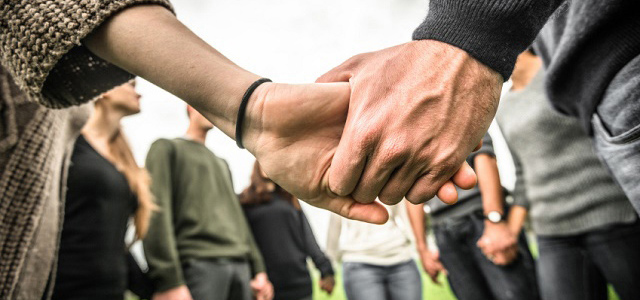Struggling with sobriety doesn’t have to happen, especially with the help of a strong community formed in a 12-step program. There are many aftercare programs available after you finish a recovery program, and as an outpatient, there are programs you can participate in locally in your community. Inpatients may be able to join and continue these programs after treatment as well.
What Is a 12-Step Program?
The most famous 12-step program is Alcoholics Anonymous, but there are others. This is a free treatment program that focuses on discouraging alcohol abuse and addiction. In any 12-step program, the participants follow 12 recovery steps to achieve abstinence; in some programs, that abstinence is from drugs, and in others it’s from alcohol.
What Are the 12 Steps in any 12-Step Program?
The 12 steps in a 12-step program may vary slightly from one to the other, but the 12 steps involved in Alcoholics Anonymous are:
- Admitting that we were powerless over alcohol and that life became unmanageable
- Believing that a power greater than ourselves can restore us to sanity
- Making a decision to turn our lives over to God as we understand Him
- Making a moral inventory of ourselves
- Admitting to God and ourselves, along with another human, the nature of our wrongdoing
- Becoming ready to remove these defects in character
- Asking for the higher power to remove those shortcomings
- Making a list of people we have harmed and being willing to make amends
- Making amends when possible, except in cases where doing so would harm the other person
- Continuing to take a personal inventory and admitting promptly when we are wrong
- Seeking help through prayer and meditation to improve conscious contact with our God, and praying for knowledge of his will for us.
- Having a spiritual awakening, we now try to carry this message through to others who are also struggling and work to carry these principles throughout our lives.
Do You Have to Be Religious to Be in a 12-Step Program?
No. Not all 12-step programs are religious, and even those that are, encourage people of all backgrounds to join. Although there is a spiritual aspect to a 12-step program, there is no specific God or religion in use. You could pray to any God as you understand him, which may mean the universe or just forces out of your control.
If you aren’t comfortable with a spiritual 12-step program, it’s possible to get involved with a secular 12-step program that does not apply faith to the 12 steps involved.
How Can a 12-Step Program Help You Work Toward Sobriety?
12-step programs have a few kinds of meetings to help you work toward sobriety. The first are speaker meetings, where you and others can share your experiences with substance abuse. The second is discussion meetings, where one speaker talks about their own struggles and then leads a discussion about recovery. Third is step meetings, where a single step of the process is discussed. Step meetings may be divided up over time; for example, you may go to a Step 1 meeting in April and then join a Step 2 meeting in May or June, depending on how far your recovery has come.
There are also open and closed meetings. An open meeting is open to the public, so anyone can come. Both those who have abused drugs and alcohol or those without substance abuse issues can come to this meeting. This can be a good meeting to attend if you want to see if this is a group you want to join.
Closed meetings are different because they are only open to prospective members or those struggling with substance abuse. Discussion meetings and 12-step meetings are usually closed to the public (except for those wanting to join or struggling with substance abuse because this provides a closer community in the group and focus on substance abuse recovery.
When you’re in a 12-step program, you generally work with at least one other sponsor. That person works with you to help keep you on track. For instance, your sponsor may call you once or twice a week to check on you and see how you are. You may have your sponsor’s phone number or home address, so you can interact outside of meetings, too.
How Can I Get Started With a 12-Step Program?
12-step programs can help you build a strong community of support while learning about addiction and sobriety. To find out more about the programs located near you, you can call us today by dialing 1-844-489-0836 to speak with someone who can help. If you prefer to visit us online, you can find more articles about 12-step programs, recovery topics, and more. Simply type in www.firststepsrecovery.com.








